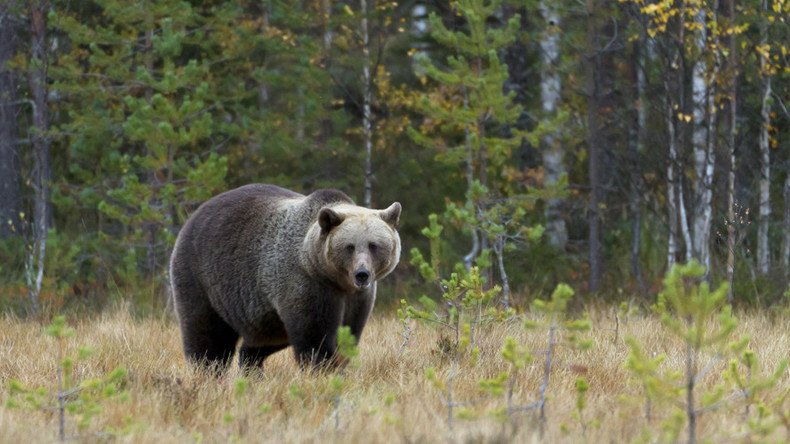Man-eating bears ‘besieging’ Siberian villages – official

Large bears have killed two people in Russia already this fall with a lack of food, making the animals increasingly aggressive and dangerous.
Authorities in the country’s far-east have had to shoot 83 bears as a result – a three-fold increase on previous years.Two men, a hunter and a fisherman, died in September following bear attacks on Sakhalin, a large forest-covered island off Russia’s east coast. The bears have also reportedly attacked dogs cattle and other animals.A local forestry worker, speaking on the condition of anonymity, told AFP that a lack of fish, berries and nuts are forcing the bears to seek out an alternative food source, putting them into contact with humans.
The stereotype is true: bears really do roam the streets of Russia https://t.co/hUmokXpBp2
— max seddon (@maxseddon) October 16, 2017
The source also said that overfishing of salmon was partly to blame.
“There should not have been any fishing nets installed at all this summer, there is so little fish, but they installed them anyway,” he said.
Newly-hired Indian zookeeper mauled to death by white tiger cubs he tried to feed https://t.co/89gqgOXtmKpic.twitter.com/djW8gvU6g6
— RT (@RT_com) October 8, 2017
Usually rare occurrences, bear attacks on humans have increased this year, especially in Siberia. In September an oil worker was attacked and eaten by bears in the Yamalo-Nenets region.
Local media reports that some towns in the region are besieged by hungry animals, looking to build up fat reserves before hibernation.
“The animals are very active, they are seen right on the outskirts of settlements, scaring people and making them feel besieged,” the region's wildlife and control service said, reported the Siberian Times.












